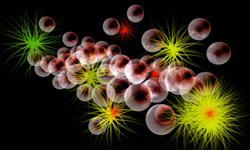Advanced training at the Large Hadron Collider
Operations at the LHC offer an unprecedented opportunity for research training in an international and multidisciplinary environment, and across a range of fields. Such multidisciplinary projects also offer an opportunity to break down fragmentation of research. Backed by the EU, the 'Data acquisition, electronics, and optoelectronics for LHC experiments' (ACEOLE) project provided funding for training activities at the LHC. Nineteen researchers benefited from scientific, technical and complementary skills development over the three-year grant period. Selected participants were supervised by international experts in the fields of microelectronics, optoelectronics, real-time data acquisition and networking. Training included both hands-on practical learning, as well as formal and informal coursework. Researchers gained improved technical and scientific expertise, but also reported improved communication skills and confidence, thanks in part to a 'Leaders in Science' course. The scientists also contributed coursework to the ISOTDAQ courses, which provide data acquisition training for particle physicists. A highlight at the end of ACEOLE was seeing the researchers employed in various positions. One was appointed as a lecturer at University College London, and another as a communications officer at Médecins Sans Frontières. Others went to work at IBM and the University of Pennsylvania, and at CERN's physics, accelerator and information technology departments. A video(opens in new window) was compiled to give a summary of the ACEOLE project, with a particular focus on the researchers' experiences.



